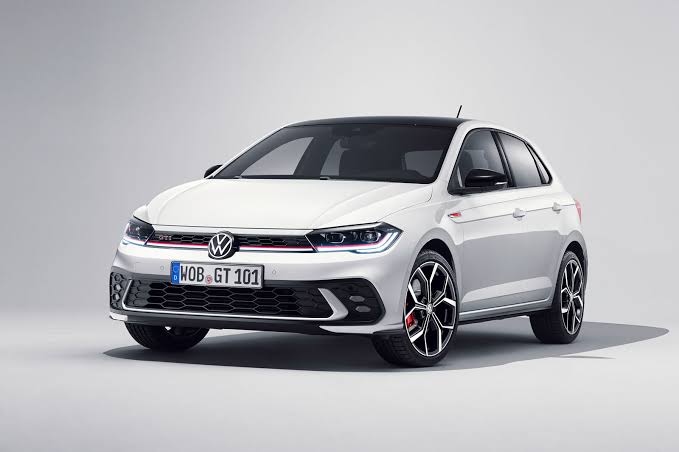For nearly nine decades, Volkswagen has been a symbol of German engineering excellence, dominating the global automotive landscape. However, the company now finds itself at a critical juncture.

Faced with declining sales, particularly in China—its largest market—Volkswagen is contemplating unprecedented layoffs and factory closures.
This move marks a seismic shift for Germany’s largest automaker, which had managed to avoid such drastic measures throughout its history.
Volkswagen has long enjoyed robust global sales, particularly in the Chinese market, where it led for years.
But as of 2024, the automaker is grappling with serious challenges.
Chinese automakers, armed with state support and advanced electric vehicle (EV) technology, have eaten into VW’s market share.
Once commanding 4 million vehicle sales in China annually, Volkswagen’s numbers have plummeted to an estimated 2.5 million.
This sharp decline is a direct result of the Chinese government’s heavy investments in electric vehicle production, which have allowed local manufacturers to gain a significant technological edge, especially in battery and EV components.
Simultaneously, the overall demand for cars in Europe has shrunk. Car sales across the continent dropped by 2 million units compared to pre-pandemic levels.
VW’s chief financial officer revealed that the company’s production now exceeds demand by the equivalent output of two factories.
Given that automakers need to operate at over 80% capacity to remain profitable, Volkswagen’s plants, currently running at about two-thirds capacity, are becoming financial liabilities.
Unprecedented Factory Closures and Layoffs
Volkswagen has already initiated cost-cutting measures aimed at saving €10 billion by 2026.
However, after disappointing financial results in mid-2024, the company acknowledged the need for even more drastic savings.
For the first time in its history, Volkswagen is contemplating the closure of factories in Germany, with tens of thousands of jobs on the line.
Two plants are particularly vulnerable, while the historic Wolfsburg site, the heart of VW’s operations, remains safe for now.
The decision to close factories in Germany, where Volkswagen employs over 100,000 people, is unprecedented.
It also underscores how deeply the automotive industry in Europe is struggling, as overcapacity and high production costs weigh heavily on German carmakers.
In addition to job cuts, Volkswagen management has scrapped a 35-year job security agreement, which had guaranteed workers’ jobs until 2029.
This has sparked outrage among unions and led to a showdown between workers and management.
Rising Competition from China
One of the most significant challenges Volkswagen faces is its loss of market share in China, a country that was once the backbone of its international growth.
Chinese automakers have capitalized on the global shift toward electric vehicles, producing cheaper, more efficient EVs.
As VW tries to transition to electric cars, it faces fierce competition from established Chinese brands that have made rapid technological advancements, particularly in battery development.
Germany, despite its long tradition of car manufacturing, is becoming an expensive place to produce vehicles, particularly for the mass market.
Volkswagen's high production costs are compounded by German wage rates, which are among the highest in the world at €62 per hour.
Comparatively, labor in countries like Spain, the Czech Republic, and Romania costs significantly less, making it nearly impossible for VW to produce affordable EVs domestically.
As a result, it has become increasingly challenging for VW to stay competitive, especially in the face of China's aggressive pricing and technological superiority.
The Future of Volkswagen
Volkswagen’s struggle is emblematic of broader issues facing the European car industry.
Europe’s automakers are dealing with a series of challenges, including a dramatic decline in car production across the continent and stringent environmental regulations that force companies to focus on reducing emissions.
Meeting the EU’s ambitious emissions targets will be even more difficult with falling EV sales in Europe.
Volkswagen, in particular, is at risk of facing billions in fines if it fails to meet CO2 standards.
On the global stage, Volkswagen must now balance competing demands.
It must ramp up its EV production while simultaneously cutting costs to remain competitive.
The company’s decision to close factories and consider layoffs will also impact its ability to navigate the evolving landscape, especially as it battles for relevance in China and other international markets.
The next few years will be critical as VW seeks to manage its traditional combustion-engine business alongside its electric future.
Union Response and Workforce Tension
Workers at Volkswagen are not taking these developments lightly.
The powerful IG Metall union has threatened strikes over the proposed closures, warning that layoffs could have devastating consequences for Germany's economy.
The union has demanded a 7% wage increase to keep up with inflation, further straining relations between labor and management.
Volkswagen's management, on the other hand, argues that drastic action is needed to preserve the company’s future.
While Volkswagen posted solid profits of €18 billion in 2023, analysts and executives alike agree that without significant cuts, the company will continue to lose its competitive edge, particularly in the EV sector, where it is already lagging behind Chinese and American manufacturers.
Looking Ahead: Is a Turnaround Possible?
The road ahead for Volkswagen is fraught with challenges.
As global automakers pivot toward electrification, VW’s ability to innovate and compete with industry leaders will determine its future.
Yet, the company faces an uphill battle, with soaring production costs, high labor demands, and increased competition from more agile, technologically advanced rivals.
Volkswagen’s next moves—whether they involve factory closures, layoffs, or further restructuring—will shape not only its destiny but also that of Europe’s car industry as a whole.
The question that remains is whether Volkswagen can regain its footing in the rapidly evolving automotive landscape or if this is just the beginning of a long, painful decline for Germany's largest automaker.
Only time will tell how the company navigates this turning point in its history.
